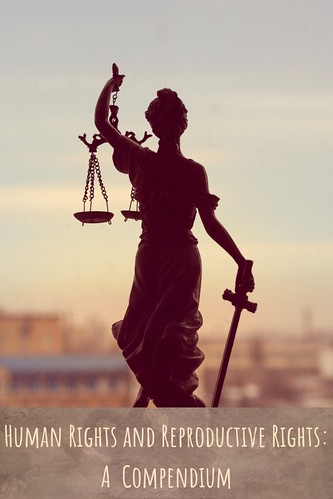Do you know what reproductive rights are, who they apply to, and what they involve?
Often, the reproductive rights narrative is minimized to:
● Women’s Rights
● Abortion
● STDs
Not only is this limited narrative incorrect—and, in some cases, harmful— it also does not fully reflect the impact, success, and importance of reproductive health care for all people in fully claiming, and enjoying their human rights.

As reproductive rights are so vast, this article aims to highlight a few key areas in which expanding the narrative around reproductive health would be beneficial, as part of the continuing effort to ensure that reproductive human rights can be enjoyed by all.
Who are reproductive rights for? A redefined openness
Reproductive rights apply to all bodies, irrespective of gender—as all bodies have reproductive systems.
Although men and women have different reproductive organs, journeys, and experiences (meaning they require different aspects of reproductive care), every person has the fundamental human right to full reproductive health care.
The topic of women’s reproductive health is more centralized globally, with approximately 303,000 women per year dying of complications from childbirth alone, and the majority of legal reproductive legislation focussing on restricting female bodily autonomy.
As such, for many, reproductive rights are often synonymous with being a woman’s right, and with areas such as abortion, sexually transmitted diseases, and legislation. Whilst these topics do come under the reproductive umbrella, in reality, they represent only a small portion of the people they apply to and the areas they impact.
It is crucial to also acknowledge that all genders need to be included within the narrative on reproductive rights…and that these rights are broader than you might think, encompassing fertility, accessible education, and state of complete wellbeing.
Men's reproductive health
An estimated 1 in 4 men are sexually active by the age of 15, meaning they are at risk of sexually transmitted diseases and unplanned pregnancies from a very young age. Additionally, there are elements of reproductive care that only apply to men. For example, impotence, also known as erectile dysfunction, occurs when a man cannot consistently maintain an erection, meaning they cannot engage in sexual activity or effectively reproduce. Affecting upwards of 52% of men, it is incredibly common, with a variety of treatments including medications and therapy.

Whilst often not life threatening, expanding the narrative of reproductive care to include male issues is important in facilitating an open, and supportive environment. Normalizing this inclusion will empower all people to confidently seek the medical care they need, allowing them to fully benefit from their reproductive human rights.
Outside the binary
Furthering inclusivity, it is also important to structure a narrative that acknowledges the needs of people who are transgender, or gender-expansive in a reproductive health setting. With little to no public education on this niche topic, it is often, unfortunately, absent from mainstream reproductive discussions.
A 2015 study found that, shockingly, 33% of transgender people and 48% of transgender men have put off or avoided healthcare and preventive measures (i.e., exams or STI screenings) out of fear of discrimination or disrespect.
In both cases, encouraging a narrative of reproductive health that is inclusive to all people builds a welcoming, supportive healthcare environment in which everyone can fully take control of their own reproductive needs, as is their human right.
What do reproductive rights include? Broadening the topic
Not only do reproductive rights apply to every individual, but when these rights are successfully upheld, they can be an incredibly positive force. In addition to providing the knowledge that is necessary to take control of your own reproductive journey, reproductive rights also help individuals embark on new journeys.
The Universal Declaration of Human Rights, Article 16, 1 states that;
"Men and women of full age, without any limitation due to race, nationality or religion, have the right to marry and to found a family."
The ability to have a family constitutes a core human experience that must be achievable for everyone. The services provided by reproductive health care, such as family planning and assisted reproduction, can be crucial in ensuring this fundamental human right is available to all.

Fertility Treatments
Whilst it is the right of all people to decide on the amount, spacing, and number of children they have, infertility can deny this right, and cause significant emotional and mental distress. For many, the fear of infertility intensifies its negative image.
In reality, whilst fertility difficulties are very common, they are also becoming increasingly overcome.
More than 48 million couples face fertility complications, and a further 186 million individuals globally are estimated to be infertile. Although environmental factors can affect fertility for both men and women, there is often not a discernible cause for why it happens, or who it effects.
40+ years after the first successful use of human in vitro fertilisation(IVF), technological and medical techniques continue to advance, alongside an ever-growing social demand. With fewer expectations on families to settle down, along with a growing diversity within family units, it is predicted that by 2100, 400 million people, or 3% of the world population, will be alive because of IVF or other fertility treatments.
Furthermore, the International Journal of Women's Health and Wellness now estimates that 60-70% of couples who seek treatment for infertility will have a healthy child.
A more central inclusion of fertility within mainstream narratives of reproduction will increase public access to services, promote positive discussions surrounding the work of reproductive health care, and normalize the use of assisted reproduction technologies, all of which will further the progress of peoples full enjoyment of their human rights.
Promoting health care: Combating stigma
Having highlighted areas in which the reproductive rights narrative can become more inclusive and expansive, it is also key to address cultural factors that restrict its development.

One significant detriment to reproductive health care is the harmful stigma around sexually transmitted diseases. Stemming from ingrained presumptions, a person’s value often decreases or is lost due to the sense of shame that is socially attached to STDs.
Unfortunately, this can stop people from getting tested, as not knowing is favorable to having to face the social and mental impacts of testing positive. This not only damages a person's own health and increases the chances of transmission to others, but also simultaneously perpetuates the harmful stigma.
In actuality, STDs are incredibly common; there are over 1 million transmitted everyday and, in a year, there are over 374 million STD transmissions globally, the majority of which won’t show symptoms. Positively, most STDs can be cured with antibiotics, and even those that cannot can often be managed through treatments.
Furthermore, unprotected sex is not the only way to contract an STD. Transmission can also occur through infected blood, blood products, transfusions, breastfeeding, childbirth and, pregnancy, meaning a baby can be born already carrying these viruses.
The importance of raising social awareness to how common and treatable sexual viruses can be is crucial to increasing the social acceptance of a diagnosis. Untreated STD can cause infertility, risk to future pregnancies, brain damage, paralysis, and in extreme cases they can be life threatening. It is imperative that, as a society, we move beyond the social stigma of sexual health in order to stop restricting its development.
Why is expanding the reproductive narrative so important?
In the wake of significant reproductive health restrictions globally, expanding the narrative of reproductive rights is more crucial than ever.
A well-rounded reproductive health discourse is vital, so that:
● All people can be informed fully, and accurately about their own bodies
● Inclusivity is increased, guaranteeing all individuals are cared for in the ways they need
● Healthcare services can be accessed, and enjoyed by all people in the pursuit of planning, or achieving a family
● Reproductive health is more openly discussed, destigmatising its services
● All people can fully experience, and benefit from their reproductive human rights

How do we expand the reproductive rights narrative?
The most effective-and most important-method to broaden the narrative around reproductive health rights is to provide accessible and accurate education for all people. By providing a rounded health education, you are also giving a person the tools necessary to make informed, healthy choices for both themselves and for those around them. Education also encourages a greater awareness of the services that are available, such as fertility care, which are not typically included in reproductive health lessons.
Through shared education, and by encouraging more open conversations around reproductive health, society can break through existing barriers to create a new narrative that is for all people, and to the benefit of all people.
To learn more or to access reproductive health services:
(USA) Planned Parenthood 1-800-230-7526 https://www.plannedparenthood.org
(UK) https://www.nhs.uk/nhs-services/sexual-health-services/guide-to-sexual-health-services/
(Global) https://plan-international.org
Please click the photo below for a compendium of my Human Rights and Reproductive Rights columns:
Emma Fitzsimmons is the Human Rights and Reproductive Rights Editor at Wandering Educators. Motivated by the desire to make a positive impact in the world, she recently completed a masters degree in Human Rights and Diplomacy. She is very passionate about reproductive rights and the equality of all people.

